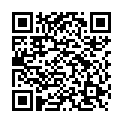Learning outcomes:
After successfully completing this module, students will:
_ be able to analyze the basics of the framework conditions in the field of different means of transport and take them into account with regard to mobility management
_ be able to understand, describe, analyze, develop, plan and design service-oriented questions and processes, as well as special features of the mobility/transport service sector
_ be able to understand and reflect on the interrelationships in the supply management of mobility/transport services
_ be able to apply basic knowledge about planning and control methods in mobility/transport service management (planning marketing instruments strategically, as well as operational implementation)
_ be able to plan, implement and control basic service-oriented strategies and concepts in mobility/transport service management (process policy within the marketing mix in mobility/transport service management)
_ be able to understand and reflect the basic knowledge of modern consumer theory in the context of tourism, mobility and transport
_ be able to reflect on the concept of sustainability in the context of transport planning, management and decision-making
_ be able to understand and communicate the perspectives for sustainable transport in Germany
_ be able to develop transport/traffic concepts for destinations
_ be able to cooperate and evaluate within the framework of project management (project focus/definition, planning, project structuring, prioritization/derivation/analysis, activity planning, implementation, success control).
_ be able to apply basics from process management to the establishment of control processes
_ be able to communicate more efficiently (pyramid principle) and interact with third parties and groups
_ be able to apply the basics of motivation and teamwork
Students will develop, expand and deepen their basic knowledge about:
- the economic dimensions in the context of tourism, mobility and transport
- the theoretical understanding of special features in the marketing of mobility/transport services
- the strategic marketing of mobility/transport service companies
- marketing mix instruments (product, price, communication and distribution policy) in a regional, national and international context
- the special aspects of the tourism and transport sector.
- market structures, market participants in the tourism and transport sector (suppliers, customers, organizations).
- traffic simulations (traffic generation, distribution, rerouting, selecting a transport mode) and the strategic planning of marketing instruments for mobility/transport service providers.
- Design (-ability) of international mobility consulting
After successfully completing this module, students will:
_ have gained insight into the management of mobility/transport services and will be able to analyze and present procedural and structural organizational issues in tourism and transport industry organizations (organizational change; special features of international tourism and transport organizations)
International and intercultural relevance:
- Working with (inter)national mobility/transport service companies
- Examples from international organizations and companies in the mobility/transport services segment
Practical relevance:
- Management and policy concepts in the mobility/transport service sector
- Business and economic methods in the mobility/transport services sector
- Social skills
- Projects, guest lectures, excursions (together with students from different semesters and study programs)
- In particular, management concepts and methods in the context of tourism, mobility and transport with a high relevance for sustainable mobility management
Students will expand and deepen their ability to use modern presentation techniques, their project and team work skills, as well as their scientific working skills.
[updated 01.10.2020]
|
Recommended or required reading:
In addition to the basic literature already specified in the modules BITM-111 and BITM-320 (see there), the following literature is recommended:
_Aberle, G., Transportwirtschaft, 4. Aufl., München, Wien, 2003
_Diederich, H., Verkehrsbetriebslehre, in: Handwörterbuch der Betriebswirtschaft, W. Wittmann et al. (Hrsg.), 5. Aufl., Stuttgart, pp. 4551-4559, 1993
_Freyer, W., Tourismus: Einführung in die Fremdenverkehrsökonomie, De Gruyter, 2016
_Grandjot, H., Verkehrspolitik, Grundlagen, Funktionen und Perspektiven für Wissenschaft und Praxis, Hamburg, 2002
_Gross, S., Handbuch Tourismus und Verkehr, 2. Aufl., München, 2017
_Gudmundsson, H., Hall, R.P., Marsden, G., Zietsman, J., Sustainable Transportation: Indicators, Frameworks, and Performance Management, Springer, 2016
_Hall, C.M., Le-Klähn, D., Ram, Y. Tourism, Public Transport and Sustainable Mobility, Channel View Publications, Bristol, 2017
_Hall, C.M., Müller, D.K, Tourism, Mobility and Second Homes, Channel View Publications, Clevedon, 2004
_Letzner, V., Tourismusökonomie _ Volkswirtschaftliche Aspekte rund ums Reisen, Oldenbourg, München, 2010
_Malhado, A., Araujo, L., Rothfuß, R., The attitude-behavior gap and the role of information in influencing sustainable mobility in mega-events, in: Cohen, S., Higham, J., Peeters, P., Gossling, S. (Hrsg), Understanding and Governing Sustainable Tourism Mobility, London, Routledge, pp. 104-122, 2014
_Rockenbauch, R., Verkehrskonzeptionen für die Zukunft unter besonderer Berücksichtigung des Fahrradverkehrs _ Eine ökonomisch-politische Analyse, Lang, Frankfurt, 1996
_Rockenbauch, R., Roth, J., Grundlagen zur Integration des Radverkehrs in die zukünftigen Verkehrskonzeptionen in Mainz, Georg-Forster-Institut Mainz, 1997
_Schiller, P.L., Bruun, E.C, Kenworthy, J.R. An Introduction to Sustainable Transportation: Policy, Planning and Implementation, Earthscan, New York, 2010
_Schröder, A., Das Phänomen der Low Cost Carrier und deren Beeinflussung raum-zeitlicher Systeme im Tourismus, Materialien zur Fremdenverkehrsgeografie, Heft 68, Trier, 2010
As well as additional literature:
_Meffert, H. (Hrsg.), Verkehrsdienstleistungsmarketing, Gabler, Wiesbaden, 2000
_Mobilitätsberatung _ Neue Lösungsstrategien im Konfliktfeld Verkehr, Tagungsband zur Mobilitätsberaterkonferenz 1994, Graz, 1994
_Sterzenbach, R., Conrady, R., Luftverkehr, aktuellste Auflage, Oldenbourg, München
_Diederich, H., Verkehrsbetriebslehre, Gabler, Wiesbaden, 1977
_Laaser, C., Wettbewerb im Verkehrswesen, Tübingen, 1991
_Frerich, J., Müller, G., Europäische Verkehrspolitik, Bd. 1 + 2 + 3, München, Wien, 2004, 2006
_Fit for Cruises: Teaching units under http://fit-for-cruises.fvw.de/
_Craig, C.S. and Douglas, S.P. (2005): International Marketing Research, 3rd. Edition, Wiley, West Sussex
_Gilmore, A. (2003): Services Marketing and Management, Sage Publications, London
_Kotler, P.; Keller, K. (2009): Marketing Management, 13.th Edition, Pearson Education, London
International Transport
_Managing Change in Tourism: Creating Opportunities - Overcoming Obstacles, Thomas Bieger, Peter Keller (Herausgeber), Berlin, latest edition
_for more see: http://www.alexandria.unisg.ch/Publikationen/Zitation/Thomas_Bieger
_Institut für Mobilitätsforschung (Hrsg.), Erlebniswelten und Tourismus, Springer, Berlin, 2004
Furthermore, project-specific introductory literature in relevant (foreign) languages will be announced in the course of the lecture.
[updated 01.10.2020]
|


